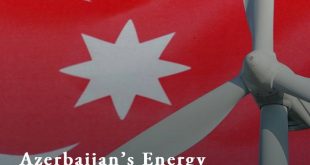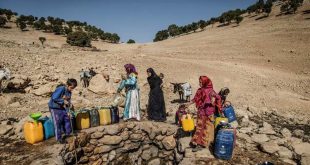On the heels of its latest forum in Algiers, the Gas Exporting Countries Forum (GECF) has grown substantially in size and influence, highlighting the essential role of natural gas in balancing global energy, promoting sustainability, and addressing market volatility, technological challenges, and geopolitical tensions. The 7th Gas Exporting Countries Forum (GECF) Summit in Algiers …
Read More »Azerbaijan’s Energy Transition Strides and Efforts to Minimize Carbon Footprint
Key Points Azerbaijan’s energy transition is driven by several factors, including the country’s growing economy, increasing energy demand, and concerns about climate change.Azerbaijan has plentiful fossil fuel supplies used for export, but as there is a global move toward obtaining zero net greenhouse gas emissions, the country will need to …
Read More »Chalous Gas Field Unlikely To Make Iran A Big Supplier
With a potential output worth $450 billion over its first 20 years, Iran’s Chalous gas field in the Caspian Sea, raises issues of both finance and where the gas might sell. The field, whose discovery Iran proclaimed in June and which has perhaps 3.5 trillion cubic meters (m3) of gas, reportedly is part …
Read More »The Uncertain Future of U.S.-Saudi Energy Relations
Saudi Arabia is undoubtedly concerned by Biden’s emphasis on addressing climate change since this would mean a drop in the demand for crude oil, the backbone of Saudi Arabia’s economy. The stability of global energy markets has long been a major factor in U.S. relations with Saudi Arabia. Riyadh’s potential to increase …
Read More »Iran’s water crisis and angry protests
Water scarcity is a growing problem in Iran that has arisen for a variety of reasons, ranging from climate change to poor governance. In recent years, the problem of water scarcity has reached a critical stage in parts of Iran, and there have been numerous reports of growing tensions, clashes and …
Read More »Iran faces its driest summer in fifty years
Iran is on the fast track to severe water scarcity. This semi-arid country, which has stressed the role of agriculture in assuring its economic independence, faces an onslaught of threats to its water supply, including climate change, population growth, mass migration, political instability, and resource mismanagement. Tehran, the capital and largest …
Read More »





